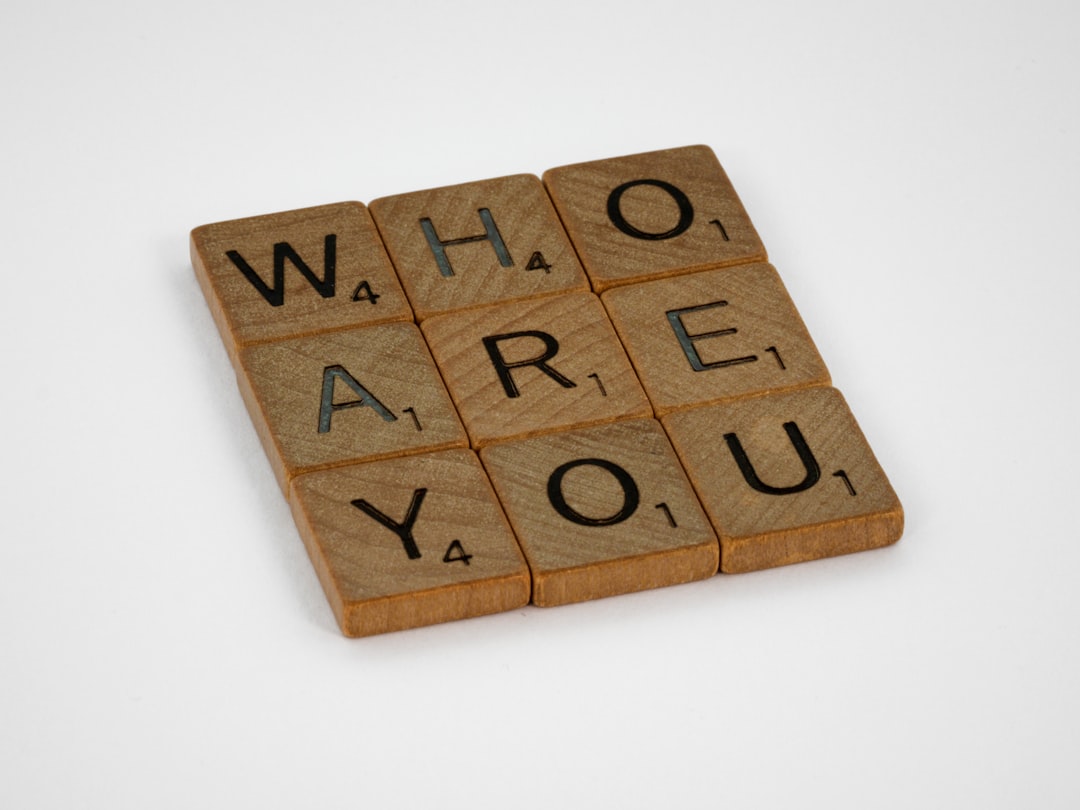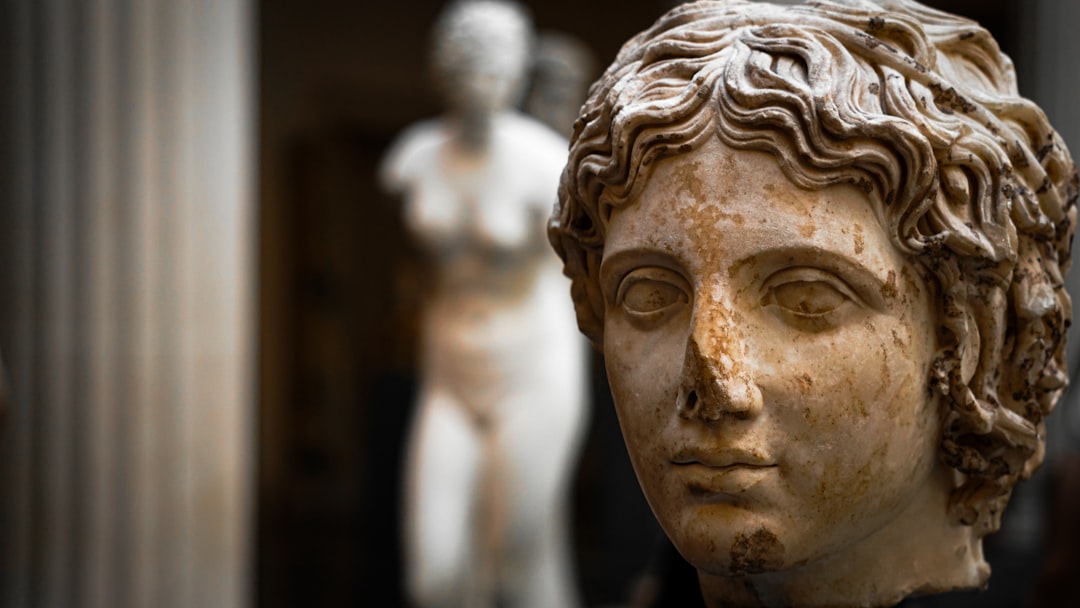Hellenic Pagan, Hellenist, or Something Other?
Sorting through the messy labels and identities.
Identity is a concept I reflect upon often, as many do, and perhaps you as well. Growing up as a Greek-American in a family with shallow roots in this country, my dual identity became an issue early in life. My father was off the boat, and my mother was only a couple of generations here, from a Greek Cypriot family. Much like Toula in my Big Fat Greek Wedding, I realized my otherness in school – how I didn’t fit in with the American kids. I remember how the other children were dumbfounded that I could speak Greek even though I was born in the USA and thus am American; I guess ethnicity and all the things that go along with it was a concept unknown to us all at that age.

My religious identity, in particular, was and is something I give much attention to. My spiritual worldview would grow and change over the years. Born into a Greek family, I was baptized in the Orthodox church before my first birthday. It was in Greece, in fact, up in the mountains in our family village, where it happened. The priest nearly dropped me, I am told because I was too slippery. The Orthodox use olive oil in the baptism; the devil can’t catch you if you're oiled up, I guess… Looking back, maybe the priest nearly dropped me because I was wiggling out of his hands to avoid baptism; escape must have been my goal. This traumatic event probably lingered with me because, as I am told, I nearly burnt down the church at my mother’s goddaughter’s baptism three years later.
I didn’t grow up in a very religious home. Religion at home was nearly non-existent; I was not indoctrinated into believing anything in particular. I didn’t go to Sunday school. Christianity was not preached to me. It would be fair to say I had no rough experiences that caused me to explore my spirituality. My exploration was likely out of natural curiosity and my interest in history. A lot of credit must be given to the History Channel, back when it was good. Programs such as Banned From the Bible, which explored apocryphal texts, interested me immediately. I slowly began to think of myself as a Gnostic. This would set me on a course, in time, to becoming a full-fledged polytheist. I like to describe my journey to Ancient Hellenic Religion as taking the long way home. There were stops along the way, which included many things within alternative religious movements.
All this experience grants me the ability (at least the willingness) to understand different groups in America regarding polytheism. What I have learned from interacting with others is that many people, particularly in the United States, unlike me, were traumatized by Christianity and are in need of a fruitful spirituality. However, because of the lack of Greek voices in the anglosphere, narratives, and identities were created without thought or reflection as to how those narratives and identities would impinge on people such as myself.

With the absence of Greeks in the world of alternative spirituality, there arose a neopagan religion called by various names such as “Hellenic Polytheism,” “Hellenic Paganism,” “Hellenism,” and “Hellenismos.” Which are all understood to be synonymous with the worship of the Greek Gods. Practitioners of such religious identification would go by identities such as “Hellenic Pagan,” “Hellenist,” and most egregious of all, Hellene.
Baseless ideas within Paganism and adjacent groups have been introduced previously. Wicca is an excellent example of a religious practice where adherents promoted the idea that it had ancient origins and lineage when, in reality, it did not. If there had been Greek voices in the past, much of the confusion and misunderstandings relating to the worship of the Gods circulating today would not exist, I like to hope.
While I have addressed the appropriation of Hellenism / Hellenismos directly, I have not touched much on the other labels and terms. “Hellenic Polytheism” and “Hellenic Paganism” also have their problems as religious identities. I think much of this has resulted from, you guessed it, the absence of Greeks. In my interactions with Pagans, it is apparent that many do not understand that Hellenic and Greek are synonymous. They know that Greek is a nationality/ethnicity (thus, you do not see pagans calling themselves Greek Pagans), but Hellenic, in their minds, is something ancient and untethered to Greeks. Therefore, they call themselves Hellenic Pagans and call their practice Hellenic.
This is problematic because Hellenic is an adjective that means relating to Greece, its people, or its language. Greece’s official name is the Hellenic Republic (Ελληνική Δημοκρατία). So, while Hellenic sounds more exotic and ancient in English than Greek, they are synonymous and refer to Greeks (Hellenes). Because of this, terms such as “Hellenic Pagan” and “Hellenic Polytheism” are problematic. It leads to the formation of identities and groups that are antagonistic to Greek identities from which the Pagan identity is derived. A good example of how problematic this can devolve into is when some Pagans call themselves Hellenic, as in, “I recently became a Hellenic…” This is an improper use of the word and must be discouraged.
Then there is Hellenist. While Hellenist does not bother me too much, it is an odd choice since it is misused. A "Hellenist" is someone who studies the language, culture, history, and civilization of ancient Greece. Hellenist isn’t a modern religious identity; however, Pagans are turning it into one. This is what I have noticed repeatedly: Pagans are turning nonreligious terms (terms connected to personal, social, cultural, and political identities) into religious identities.
At this point, you may be thinking, well then, Angelo, if Pagans can’t use Hellenic and Hellenist, what can they use? Because identity is something I think a lot about, I did think about this in a meaningful way. I think people can call themselves Pagan; there need be no qualifier at the beginning to specify what sort of Pagan one is. If someone desired to qualify it, and their interests leaned heavily towards Greek Gods, I think Hellenistic Pagan would be a fine choice.
While Hellenistic is not a religious term, its appropriation here is not harmful. Greeks today do not use Hellenistic in any meaningful way as it relates to our identity other than it being derived from the word "Hellene" the word for a Greek person. The "-istic" suffix in "Hellenistic" denotes a relation to or characteristic of something. Therefore, "Hellenistic" pertains to the characteristics of the Hellenes (Greeks) or things related to them. The term "Hellenistic" specifically came into use to describe the period and culture that followed the conquests of Alexander the Great, during which Greek culture spread and mingled with the cultures of the vast regions Alexander had conquered, from Greece to Egypt and as far east as India. This era saw a fusion of Greek (Hellenic) culture with the local cultures of these regions, leading to the emergence of a new, syncretic cultural milieu, which we now refer to as "Hellenistic." In essence, the term "Hellenistic" signifies the Greek-influenced culture of this period, which was distinct from the classical Greek (or Hellenic) culture that preceded it.
With this historical understanding of Hellenistic, I do think it is appropriate and acceptable for Pagans to use it today in their religious constructions and creation of personal religions and communal religions. Just as there is no singular religious name that the Greeks ourselves use today, Hellenic Ethnic Religion and Ancient Hellenic Religion are the only two currently recognized in Greece; I want Pagans to start to understand that there isn’t a common religion they are joining or trying learn about. Thus, it is wrong to ask ‘What does the Hellenic religion think about….” Instead, they should frame it as “In my Hellenistic practice, I think….” And while Hellenism is not a religion, I see no reason why Hellenistic Pagans can’t say they practice Hellenisticism.
To sum up, I am advising Pagans not to appropriate words and terms linked to people’s lived identities and to consider using terms that do not infringe upon those identities. I think the shift towards Hellenistic Polytheism / Hellenisticism will create, for everyone, a space for exploration and experimentation in the modern world that would be akin in many ways to the ancient Hellenistic period. When we have clear identities and terms, amazing things can be created.





This is really interesting and thought-provoking. I had think about this a lot, not knowing how to put in words my on beliefs without been disrespectful. So I always say I believe in the Greek Olympian Gods. I really enjoyed reading your post!
Thank you for this thoughtful and helpful essay.